
or

In a recent development that could have major ramifications on intellectual property cases in pharmaceutical and technology sectors, the Delhi High Court issued a notice to the government in a PIL (Public Interest Litigation) filed by Mr. Shamnad Basheer in regard to the “working statement” of patented inventions in India.
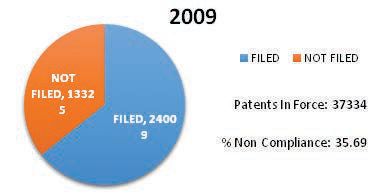
According to Section 146(2) of the Patents Act, 1970 read with Rule 131 of the Patent Rules, 2003, every patentee and every licensee has to make an annual disclosure (Form-27) as to how far and to what extent the patent has worked on a commercial scale in India.
A statement of working is a yearly declaration to be made by the patent-holder and/or the licensees attesting the fact that the invention has indeed been commercially worked for the benefit of the public.
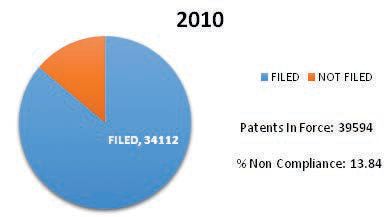
To determine whether a patented invention has been “worked” (i.e. made accessible to the public for its benefit), the Form 27 seeks the following information:
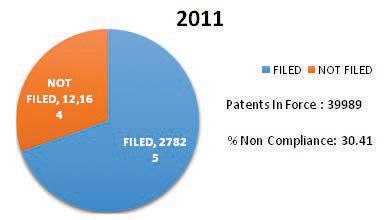
Furnishing such information is crucial in compulsory licensing casesin order to establish whether the patented invention has fulfilled the reasonable requirements of the public by interalia selling the patented product at an affordable price.
Patent working data is critical for triggering compulsory licensing and revocation provisions.This information played a pivotal role in the compulsory licensing dispute between Bayer Corporation v.Natco Pharma Ltd.Natco used this data to stake their claim to launch a more affordable version of a life-saving cancer drug, showing MNC firm Bayer’s Form 27 patent filings where it was supplying the drug to only 2% of the patient population.
In the matter of Shamnad Basheer v Union of India, the petitioner(Mr. Basheer) prayed that the Hon’ble Court may, in public interest, be pleased to issue a Writ of Mandamus, or any other appropriate writ or order directing the authorities:
Petitioner conducted survey in three critical areas: pharmaceutical drugs (lifesaving drugs for fatal diseases such as cancer, AIDS, diabetes and hepatitis); telecommunications; and publicly funded research and development and submitted data before the Court in regard to non-compliance and defective declarations of working of patented inventionsalong with other relevant supporting documents in the PIL, reproduced here:
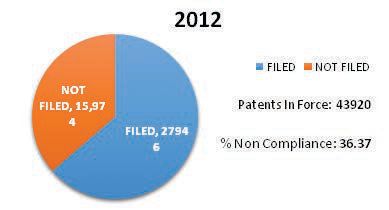
According to the petitioner, approximately 35% of patentees did not disclose any working information for the years 2009 to 2012. Also a significant number of defective declarations were submitted which were incomplete, incomprehensible or inaccurate.
The government has now accepted notice and has been given 4 weeks to file a reply. The next date of hearing in the matter is November 17, 2015.
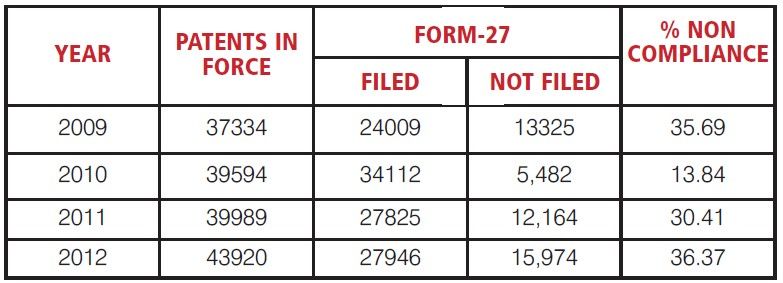
Bhawna Sharma is an Indian Patent Agent with S.S Rana & Co . She is a skilled IP Asset & Technology Intelligence professional with extensive practical experience over 6 years in Patents and Designs. She holds Masters Degree in Life Science and Post Graduate Diploma in IPR. She is proficient in all aspects of patents and designs including but not limited to Searches, drafting, National and International filing, prosecution and providing opinions related to patents in various domains of Life Sciences- especially Pharmaceutical, Bio Pharma, Medical Diagnostics, Biotechnology. She is directly engaged in establishing strong client relationships with key players, structuring the client requirements, assessing pipeline, forecasting work load and delegating task among the team members, meeting deadlines and ensuring quality of the work.
Vikrant Rana is the Managing Partner of S.S Rana & Co., a premier Intellectual Property Law Firm of India. As an Advocate-on-Record with the Supreme Court of India (2006) and registered as a Patent Agent in 1998, Vikrant has been litigating in courts all over India, primarily at the Supreme Court of India, various High Courts across the country, Trademarks Registry, Patent Office, Intellectual Property Appellate Board and the Copyright Board of India.

Lex Witness Bureau

Lex Witness Bureau

For over 10 years, since its inception in 2009 as a monthly, Lex Witness has become India’s most credible platform for the legal luminaries to opine, comment and share their views. more...
Connect Us:


The Grand Masters - A Corporate Counsel Legal Best Practices Summit Series
www.grandmasters.in | 8 Years & Counting
The Real Estate & Construction Legal Summit
www.rcls.in | 8 Years & Counting
The Information Technology Legal Summit
www.itlegalsummit.com | 8 Years & Counting
The Banking & Finance Legal Summit
www.bfls.in | 8 Years & Counting
The Media, Advertising and Entertainment Legal Summit
www.maels.in | 8 Years & Counting
The Pharma Legal & Compliance Summit
www.plcs.co.in | 8 Years & Counting
We at Lex Witness strategically assist firms in reaching out to the relevant audience sets through various knowledge sharing initiatives. Here are some more info decks for you to know us better.
Copyright © 2020 Lex Witness - India's 1st Magazine on Legal & Corporate Affairs Rights of Admission Reserved